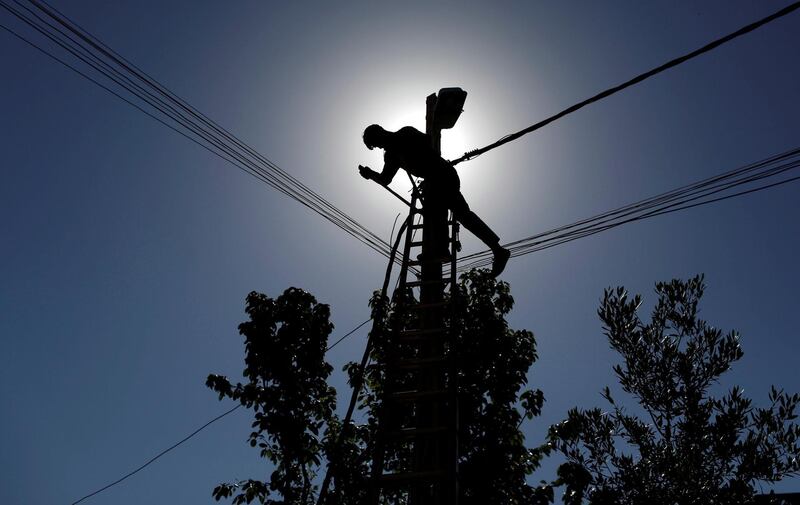The US has granted Iraq a 90-day Iran sanctions waiver to allow it to continue to import electricity from Tehran, the State Department said on Friday.
Iraq's power sector is in disrepair and does not generate enough electricity to meet domestic demand. US sanctions that went into effect in November have threatened to cut the country off from its chief supplier, Iran.
The US initially granted Iraq a 45-day waiver to allow it carry on buying electricity and gas from its neighbour while arranging for new suppliers.
Iraq will now have another 90 days where it can continue to pay Iran for electricity imports, the State Department's public affairs office said. But it is barred from paying for gas imports, or it could face 'secondary sanctions' -- penalties for doing business with a sanctioned entity, Iran.
President Donald Trump moved to restore tough US sanctions after withdrawing from Tehran's nuclear accord with world powers in May. Sanctions targeting the country's energy and finance sectors went into effect in early November, ramping up pressure on Iran's economy.
The US is encouraging Iraq to break its dependence on Iran and develop its own gas and power generation sectors. Earlier this month, Energy Secretary Rick Perry visited Iraq with a trade delegation from the Chamber of Commerce to promote US investment in Iraq's energy sector.
"I'm here to tell you that America and its business community stand ready to assist you," he said.
Iraq's new oil minister, Thamer Ghadhban, has made it a priority to capture natural gas instead of flaring it off as a byproduct of crude oil production.
___________________
Read more:
Iraq confirms three cabinet ministers but deadlock on key posts remains
UAE launches greatest cultural restoration project in Iraq to revive Al Nuri mosque
UAE funds rebuilding of Mosul’s Al Nuri Mosque and historic minaret
___________________
Most experts, however, agree that Iraq will need at least a year to wean itself off Iranian energy imports, or risk worsening power outages. Electricity demand peaked at 24 gigawatts this year while domestic production was fixed at 16 gigawatts, leading to lengthy and unpredictable blackouts in the hottest months of summer. The outages were one of the triggers to the unrest that shook Basra, Iraq's capital oil city, from July until September. Iraq has a contract to import 1.2 gigawatts of electricity from Iran, according to the Texas-based intelligence company Stratfor.
Iraq imports food and other goods from Iran, and the two countries keep close political ties. Trade between the two countries is expected to reach $8.5 billion this year.
The US has granted eight other countries — China, Greece, India, Italy, Turkey, South Korea, Taiwan and Japan — 6-month sanctions waivers to give them time to reduce energy imports from Iran to zero.





